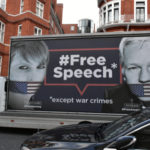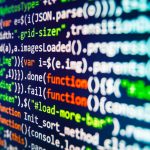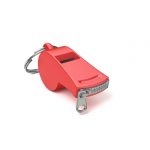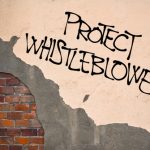In the Public Interest: An Interview With Former Military Lawyer David McBride
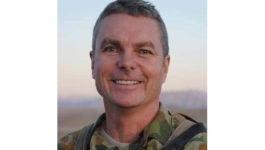
Former military lawyer David McBride appeared in the ACT Supreme Court on 13 June on charges relating to classified military files that he handed over to an ABC journalist in 2016. The leaked documents formed the basis of the 2017 report The Afghan Files.
Mr McBride had previously pled not guilty to five charges, which comprise of one count of the theft of Commonwealth property, three counts of breaching the Defence Act and another count of unauthorised disclosure of information: an offence that fell under the Crimes Act three years ago.
The Crown prosecutors told the court last Thursday that they were yet to have a brief of evidence, as what they do have can’t be served until national security orders are made due to its sensitive nature. So, the matter has been adjourned until 27 June.
Outside the court, Mr McBride said that he has faith in the Australian judiciary. And the lawyer who represented himself in court asserts that his actions were in the best interest of not only the public, but the entire nation. And he expects to be found not guilty.
The right to know
The 5 June AFP raid on the Sydney office of the ABC was in relation to the files that McBride leaked three years ago. And this has led to questions being raised about the purpose of the operation, as Mr McBride was arrested over the matter back in September last year.
Things came to a head for the lawyer, when he was deployed in Afghanistan in 2013, as the legal officer for the Australian Special Forces. “The point came where there was no doubt in my mind that a line had been crossed,” he wrote in an article in SMH, “and lives were being cynically wasted.”
A former captain in Britain’s Special Air Service, McBride initially raised his concerns in “a politely worded complaint”. But, when that led to inaction, he went to the police and then onto the minister. And finally, he was forced to take the issue to the press.
The Afghan Files report outlines that hundreds of files were leaked to the national broadcaster, which gave “an unprecedented insight into the clandestine operations of Australia’s elite special forces in Afghanistan, including incidents of troops killing unarmed men and children”.
Criminalising the truth
The case against Mr McBride is being framed around national security. But, he’s adamant that what he did in no way threatened the safety of the nation. And rather than it being a case of the nation’s security, he’s see it as one that is “nationally embarrassing”.
And as far as the whistleblower is concerned, the government’s now using the term “national security” as a way of silencing those prone to expose corruption within its ranks via the threat of being charged with espionage.
Sydney Criminal Lawyers spoke to David McBride about the elusive reasons behind the raid on the ABC offices, the Australian Defence Force’s “Instagram war” in Afghanistan, and at what point the nation crossed the line to make genuine whistleblowing a crime.
Firstly, you leaked the documents that have become known as The Afghan Files. The government obviously didn’t want this information in the public realm. And you stand firm by your decision to get it out there.
Mr McBride, why do you believe the public had the right to know what was contained in those documents?
If the government breaks the law, something needs to be done about it. You can’t have it like in Nazi Germany, where people said, “I was just following orders.” That’s how we get holocausts.
Government employees have got to use their moral compass to say, “No. That’s wrong. Enough is enough.” And be prepared to stand up for it.
You’ve said that when you were in Afghanistan you were concerned Australia was running an “Instagram War”. What do you mean by that?
They weren’t following the law. And they weren’t trying to make effective contributions to actually win. All they were doing was trying to get “likes” from the public.
For example, we dropped bombs to look good. There was no plan, or anything that actually worked. We built schools just to get a photo opportunity, without anybody doing any credible study to see whether building a school was actually going to help Afghanistan in the long-term.
Everything was done for appearance. And while that doesn’t sound bad. It was bad because we were even killing our own soldiers for appearance. And we had no intention of actually improving the situation. It was just appearance for the voters.
Your case has been framed around national security. What are your concerns about that argument?
It’s quite ridiculous. The government is now able to use this catchphrase – national security – to silence dissent.
You could be an investigative journalist who says the minister had taken a bribe of $10 million dollars from a foreign company, and they will say, “That’s national security. We’re going to put you in gaol forever.”
We’ve crossed the line. We used to criticise nations like China and Russia. And now, we can put genuine dissenters in gaol under spurious national security grounds.
So, how did we cross that line?
Slowly, by increments. And we assumed that there was some sort of adult supervision in Canberra. But, unfortunately, there isn’t. There’s nobody.
The secretaries of the departments don’t see it as their job to have any kind of legal input. Mike Pezzullo has gone on the record about that. He said, “It is not our job to second guess the ministers.”
The ministers only care about getting re-elected. So, they don’t have anyone in their office to say, “Well, that’s not really legal. That’s not a question of national security.”
The governor general is not interested in getting down amongst the politicians. And the AFP only consider their role as looking out for the government, rather than in.
So, there’s no one to stop them abusing national security. We probably need changes in government, or the system, to make sure that there’s some sort of adult supervision.
The raid on the ABC was over documents you leaked. Considering you were already facing court at the time the raid was carried out, what do you believe was the purpose of it?
I don’t completely know. It could be because the ABC story didn’t really capture the essence of the document. They may have wanted to make sure and have a second look at it, or maybe they were just doing it for show.
The most educated people in Australia are appalled by the raids. But, there are the swinging voters that re-elected Morrison and after the first raid, I wouldn’t be surprised if they got some sort of approval rating from those voters, and decided to do a second one, which backfired.
You’re facing five charges and some hefty prison time. How do you feel about the prospect of going to gaol over a matter you considered to be your duty?
I’m divided about it. I’ve got two young children. They’ll be devastated. And I spent one night in the lockup, after I got arrested. And I have to say, I hated it.
But, that’s not the equation: I do what I have to do. Something is either right or it’s wrong. And if it’s right, you’ve just got to do it. And I’ll have to cross that bridge when it comes.
I have to say to myself, “If not me, who?”
And lastly, Mr McBride, you’re not the only whistleblower facing serious prison time over exposing corruption. There’s Witness K and former ATO employee Richard Boyle.
What sort of protections should be available to those compelled to tell the truth? How should whistleblowers be treated when they’ve revealed information in the public interest?
It’s got to a ridiculous stage, where I’m facing more prison time than a real terrorist trying to blow up a building. We need to relook at the penalties.
The most important thing that we need to do though, is take action against the people who the whistle is blown against. Now, we might be able to get a conviction. And what I would like to see is the AFP start to do their job and actually open a file on those people.
One of the frustrating things about the Commonwealth Bank whistleblower was no action was ever taken, even though it was established that there were a lot of things wrong in the banking industry.
And that’s all that any whistleblower really wants: some action to be taken against the people they’ve outed.



